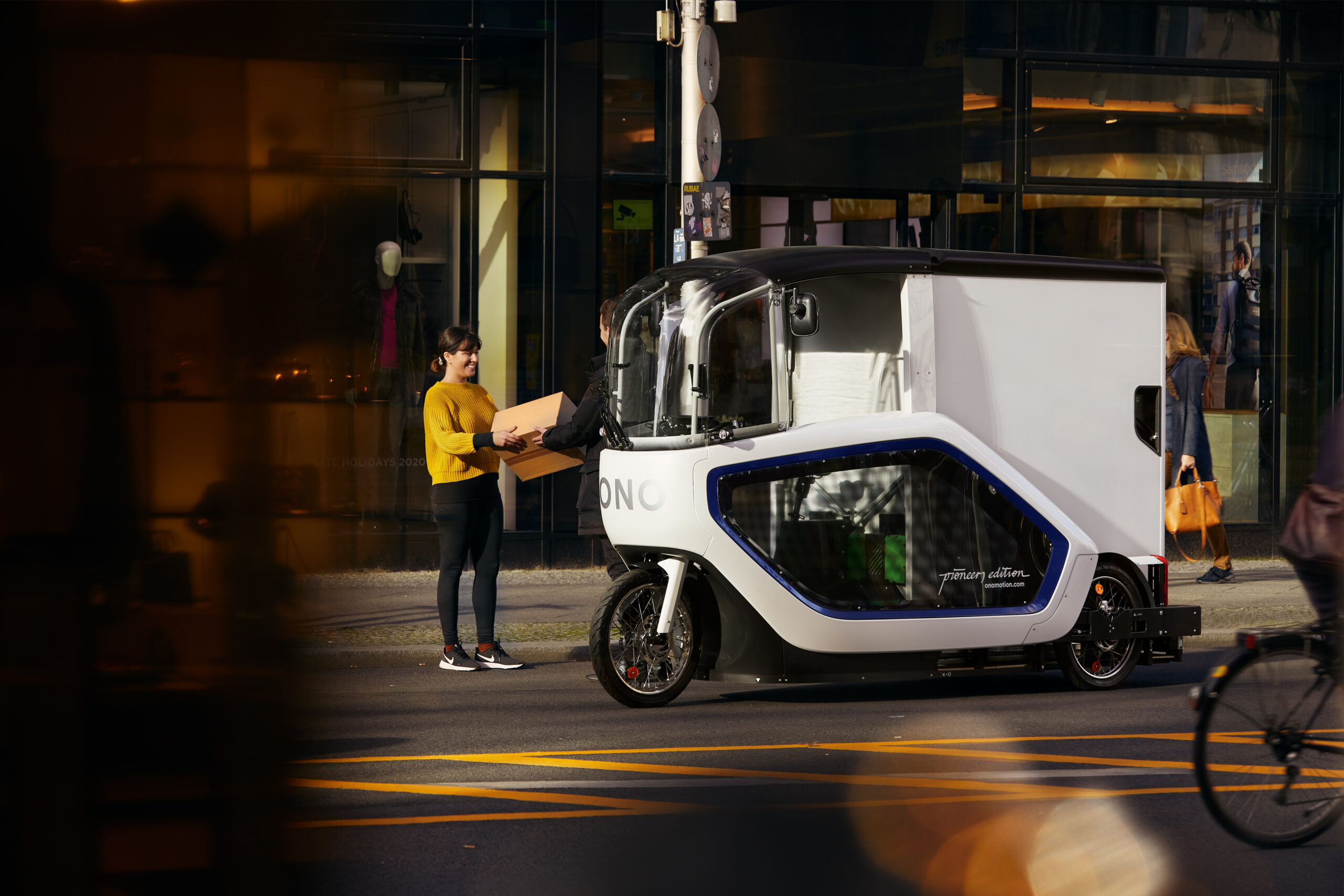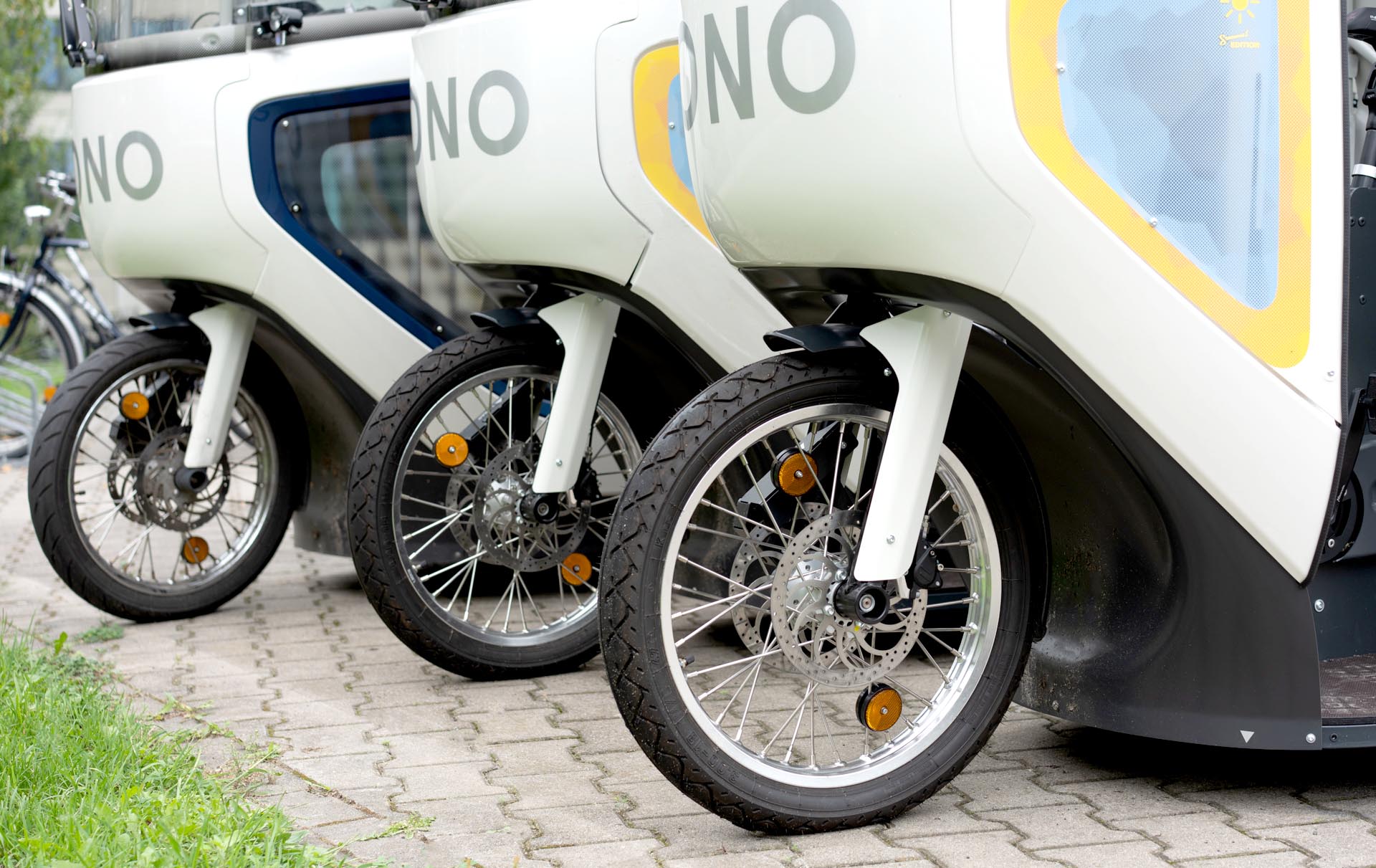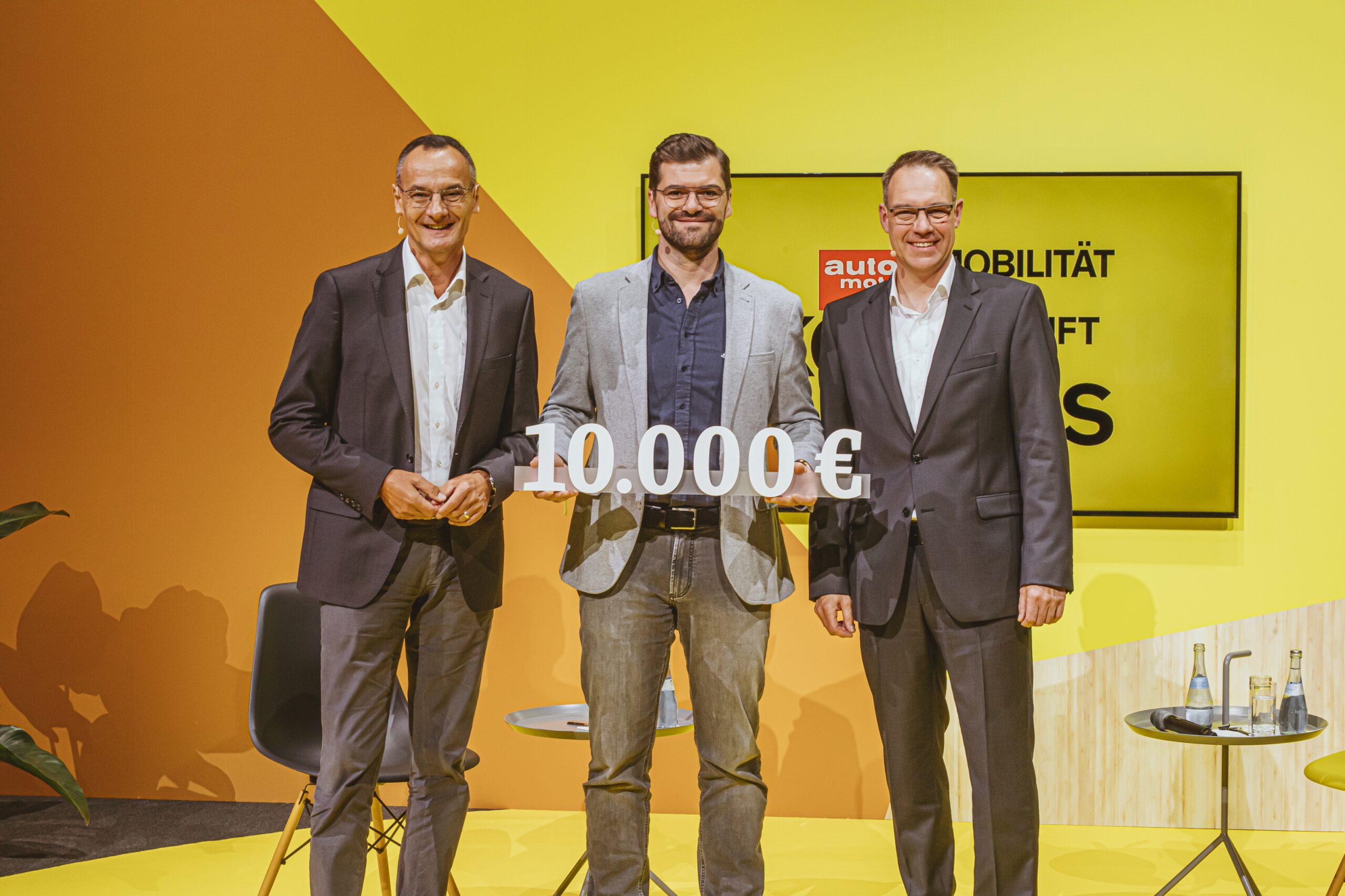ONOMOTION TALKS CITY LOGISTICS
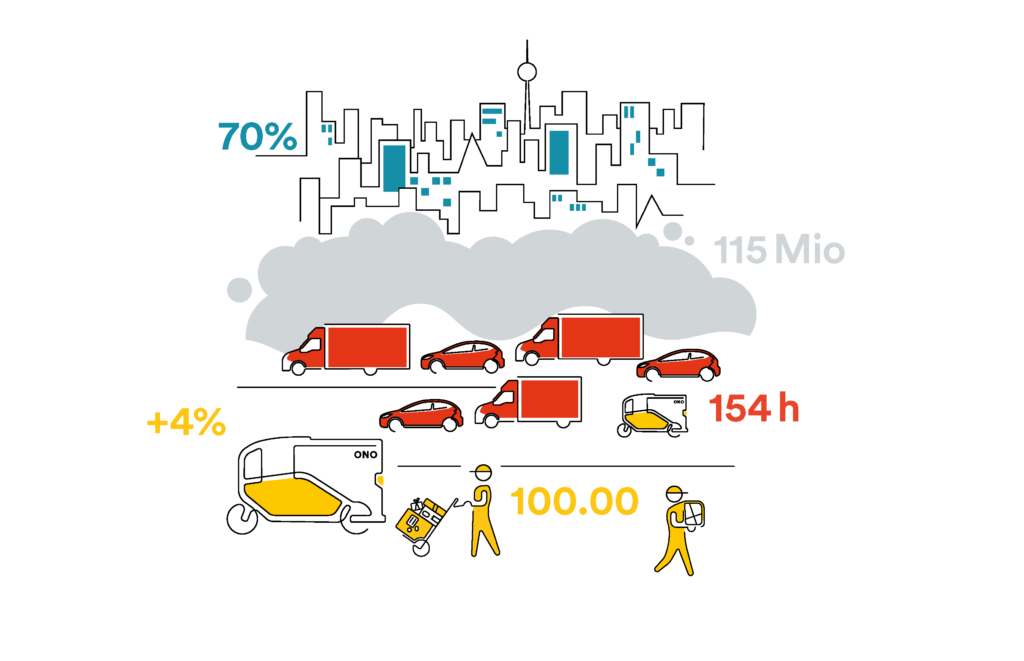
When implementing innovative solutions, companies are confronted with various restrictions of the existing transport systems. The desired change can only be achieved in harmony with politics.
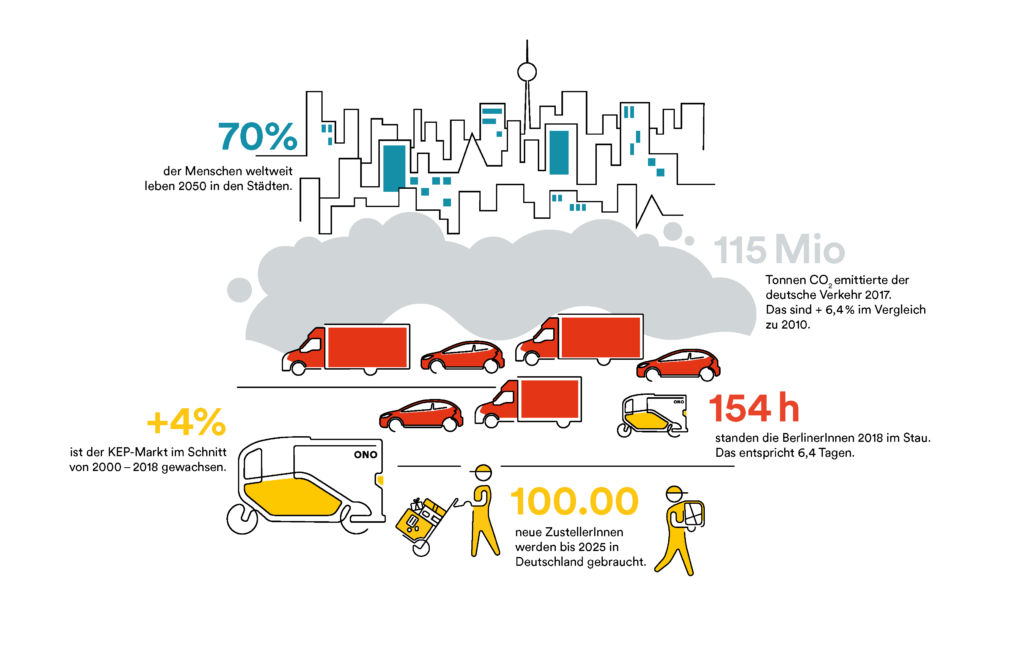
In the course of the last few years, it has become apparent that urban commercial transport is increasingly failing to meet the requirements of customers, residents, companies and infrastructure. The ongoing boom in e-commerce correlates with the growth of the CEP market, which has, to a certain extent, caused this economic sector to outgrow its environment. In addition, existing traffic areas are used and burdened by the transport of everyday goods and other shipments. As a result, residents, nature and also the logistics companies are exposed to a traffic load that can hardly be handled, which has an effect in the form of traffic jams, pollutant and noise emissions, but also a lack of personnel in the companies. As a result, city logistics has experienced a considerable increase in media and scientific publicity. City logistics is the entrepreneurial organization of freight transport journeys to optimize capacity utilization and minimize the number of journeys in conurbations. It acts as a kind of capillary system for the city and ensures that the population is supplied according to demand, within the shortest possible time, efficiently and in an environmentally compatible manner.

In particular, the restructuring of existing spaces is of high importance for the urban logistics of the future. Space utilization should focus more on the common good than on the right to individual mobility through the ownership of a private car. Parking lots could be converted into parking spaces for logistics vehicles or healthy means of transport or serve as parking space for temporary storage. With the help of these so-called micro depots, a changed process chain is possible on the last and also first mile. In out-of-town distribution centers, shipments are pre-sorted and transported to the micro-depot in town, which is located in the immediate vicinity of the delivery area. From there, space-saving and environmentally friendly vehicles, such as e-cargo bikes, are loaded and take over delivery of the shipments to the persons authorized to receive them. By eliminating or minimizing the need for conventionally polluting and large vehicles, traffic flow and air quality are improved.
A concrete application example for newly designed supply chains is currently being tested in Frankfurt am Main. The special feature is that a streetcar instead of a conventional transporter is used to deliver the micro-depots. In the three-stage delivery by the logistics streetcar, mobile micro-depots are transported to a loading point located on the outskirts of the city, where the transfer to a streetcar car takes place. Along the streetcar route, micro-depots are set up at defined locations from which the third stage of the supply chain takes place. In this, the shipments are transferred to e-cargo bikes, which are used to make the delivery to the person authorized to receive the shipment. This combines the advantages of the streetcar for long distances and the cargo bike for short distances and keeps the van out of the city center.
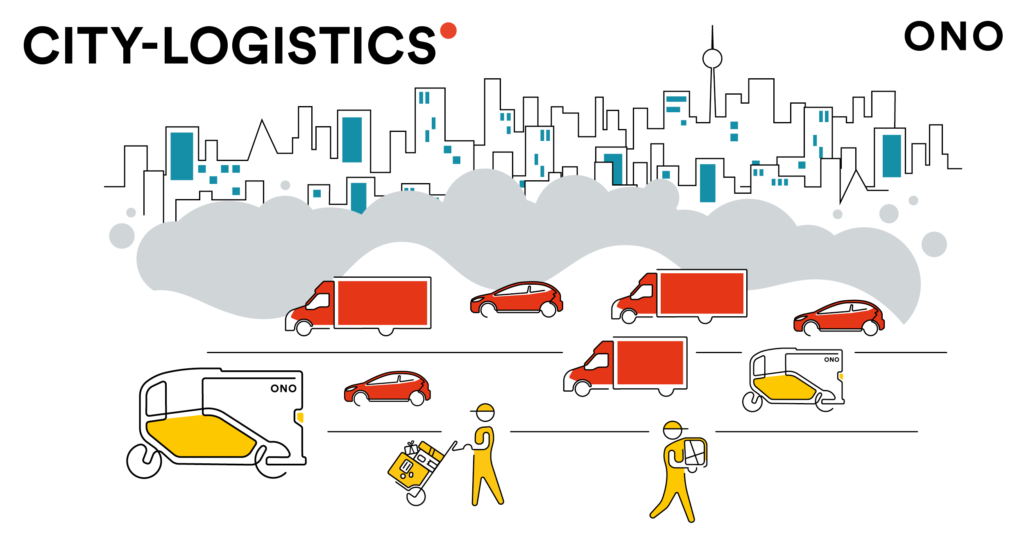
When implementing innovative solutions, companies are confronted with various restrictions of the existing transport systems. The desired change can only be achieved in harmony with politics. Infrastructural adjustments, such as the expansion of cargo-bike suitable bicycle facilities and the rededication of existing areas for logistics vehicles or micro-depots are necessary conditions for the change in urban transport. In addition, a comprehensive network of charging stations and an improved digital infrastructure are needed to ensure the supply of new technologies or to make them possible in the first place. In addition, a corresponding legal framework is needed that, for example, expands the use of cargo bikes and facilitates the entry of innovations.
In the end, it is made clear that the complexity of city logistics requires a high degree of individualization of the respective services. It is a matter of conceiving solution approaches which are on the one hand economical, but at the same time environmentally and human friendly. Delivery concepts that guarantee a livable city in the future must be advanced more urgently than ever.




